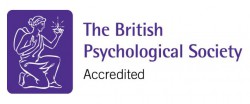The Advantages of Dyslexia: Realise your potential by unlocking your talents
So often, people with dyslexia think about the things they find difficult. Indeed the term Specific Learning Difficulties makes everyone think about what is difficult when it comes to dyslexia or indeed any other learning difference. Experts including David McLoughlin, and Fernette and Brock Eide have identified that people with SpLD process information differently so they are often very good at thinking holistically and seeing the bigger picture. This enables them to set things into context and anticipate consequences. They are often good at identifying connections and patterns. This can make them more flexible and open to different approaches, philosophies and trends.
Research recently completed at the Harvard-Smithsonian Center for Astrophysics looked at the talents for science among those with dyslexia. Once such talent is the ability to “spot weeds among flowers”, that is, the see things that so called “neuro-typicals” often fail to see. The research showed that people with dyslexia were better at looking at the whole image and spotting things that were not quite right. Rather than focussing on the details, dyslexics distribute their attention more evenly, in other words they exhibit big picture thinking. Matthew H Schneps published an article in Scientific American which expands on his personal experience and his research. He (and others) suggest that one reason people with dyslexia may exhibit visual talents is that they have difficulty managing visual attention. It may at first seem ironic that a difficulty can lead to an advantage, but it makes sense when you realize that what are called “advantages” and “disadvantages” have meaning only in the context of the task that needs to be performed.
Schneps gives the following example. Imagine you’re looking to hire a talented security guard. This person’s job will be to spot things that look odd and out of place, and call the police when something suspicious —say, an unexpected footprint in a flowerbed— is spotted. If this is the person’s task, would you rather hire a person who is an excellent reader, who has the ability to focus deeply and get lost in the text, or would you rather hire a person who is sensitive to changes in their visual environment, who is less apt to focus and block out the world?
He explains that tasks such as reading require an ability to focus attention on the words as the eyes scan a sentence, to quickly and accurately shift attention in sequence from one word to the next. However, to be a good security guard the opposite skill is needed. It becomes more important to able to be alert to everything all at once. Although this isn’t helpful for reading, it can lead to talents in other areas. If the task is to find the logical flaw in an impossible figure, then this can be done more quickly if the individual can distribute attention everywhere on the figure all at once. If, however, one focuses on the visual detail, to examine every piece of the figure in sequence, it will longer to determine whether these parts add up to the whole. In such an environment, the person would find themselves at a disadvantage.
Some people with SpLD can be creative and frequently learn better through pictures and experience. They tend to bring experiences from different backgrounds or disciplines to a new field which means that they can think laterally to overcome problems and issues. However, In order to achieve within ‘conventional’ systems of study and work that are largely based on the written word people with SpLD have to be determined, persistent, hardworking and resilient.
Have you been focussed on the things that you can’t do, rather than leveraging your hidden talents? Perhaps we can help you unlock your full potential. Contact About Dyslexia to learn more about how we can help you to realise your full potential. You can either call us on 01992 589 159 or email enquiries@about-dyslexia.co.uk.
References
Schneps, Matthew H, Scientific American, August 19, 2014
Brock L Eide M.D. M.A., Fernete F. Eide M.D. The Dyslexic Advantage : Unlocking the Hidden Potential of the Dyslexic Brain
McLoughlin D., & Leather, C.A., The Dyslexic Adult; Interventions and Outcomes – An Evidence Based Approach.



